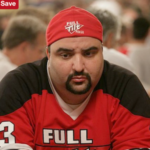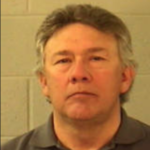Black Friday
Black Friday is the phrase used by the online poker industry to describe the day indictments were unsealed against PokerStars, Full Tilt Poker, and Absolute Poker. The date was April 15, 2011. The U.S. Attorney’s Office in the Southern District of New York was the arm of the U.S. Department of Justice that brought the case. This was the first time the 2006 Unlawful Internet Gambling Enforcement Act (UIGEA) was used in an indictment.
There were a total of 11 individuals indicted on Black Friday. These included online poker room management and payment processors.
SPS Approved Safest Online Poker Sites
Individuals and Charges from Black Friday
- Conspiracy to Violate UIGEA: Isai Scheinberg, Raymond Bitar, Scott Tom, Brent Beckley, Nelson Burtnick, Paul Tate, Ryan Lang, Bradley Franzen, Ira Rubin, Chad Elie and John Campos
- Violation of UIGEA: Isai Scheinberg, Raymond Bitar, Scott Tom, Brent Beckley, Nelson Burtnick, Paul Tate, Ryan Lang, Bradley Franzen, Ira Rubin, Chad Elie and John Campos
- Operation of Illegal Gambling Business: Isai Scheinberg, Raymond Bitar, Scott Tom, Brent Beckley, Nelson Burtnick, Paul Tate, Ryan Lang, Bradley Franzen, Ira Rubin, Chad Elie and John Campos
- Bank and Wire Fraud: Raymond Bitar, Brent Beckley, Nelson Burtnick, Paul Tate, Ryan Lang, Bradley Franzen, Ira Rubin, and Chad Elie
- Money Laundering Conspiracy: Isai Scheinberg, Raymond Bitar, Brent Beckley, Nelson Burtnick, Paul Tate, Ryan Lang, Bradley Franzen, Ira Rubin, Chad Elie and John Campos
A Look at Black Friday Defendants and Status as of July 2014
- Isai Scheinberg: Founder of Pokerstars, case still open
- Paul Tate: Director of Payments for PokerStars, case still open
- Raymond Bitar: CEO of Full Tilt Poker parent company, pleaded guilty after his health deteriorated. He served seven days in prison and forfeited over $40 million in assets.
- Nelson Burtnick: Director of Payments for Full Tilt. Previously held similar position at PokerStars. He pleaded guilty and received prison time.
- Scott Tom: Cofounder of Absolute Poker, pleaded guilty to single misdemeanor in 2017.
- Brent Beckley: Director of Payments at Absolute Poker. Pleaded guilty and was sentence to 12-18 months in prison.
- Ryan Lang: Payment processor that pleaded guilty.
- Ira Rubin: Payment processor that pleaded guilty and was sentenced to three years in prison.
- Bradley Franzen: Pleaded guilty to money laundering charges.
- Chad Elie: Pleaded guilty and served five months in prison.
- John Campos: Part owner of SunFirst Bank in Utah. This bank helped process payments for PokerStars and Full Tilt Poker. He was sentenced to three months in prison.
Effects of Black Friday
PokerStars
PokerStars left the U.S. market hours after the indictment was unsealed. It was able to repay players within two weeks of Black Friday. PokerStars was the number one online poker site at the time. It remains in the top spot today, even without Americans on the site.
PokerStars settled with the U.S. Government for $731 million in 2012. Part of this settlement gave PokerStars the Full Tilt Poker assets. A portion of these funds went to pay U.S. players that were stiffed by Full Tilt Poker.
PokerStars hopes to reenter the U.S. regulated market in the future. It attempted to do so in November 2013 but saw its licensing application get suspended due to the involvement in the company of people still under indictments associated with Black Friday.
In June 2014, Amaya Gaming announced that it would acquire PokerStars. Its New Jersey licensing application is now under consideration again.
Full Tilt Poker
Full Tilt Poker was the second largest site in the world at the time of Black Friday. It banned U.S. players one day after the Black Friday indictments were unsealed.
Full Tilt Poker was unable to pay U.S. players. Black Friday exposed a fraud. Full Tilt Poker had been accepting electronic check deposits from players without ever receiving the money. This allowed players to get credited with phantom funds. These funds were lost at tables but Full Tilt was unable to cover them as it never got paid due to a lack of access to the U.S. banking system.
It also turned out that Full Tilt Poker’s owners were paying themselves dividends from player funds. Full Tilt lost its Alderney license on June 29, 2011. It closed immediately. It did not reopen until PokerStars took over in November 2012.
Absolute Poker and Ultimate Bet
Like Full Tilt Poker, Absolute Poker was also a fraud. It was previously the home to two cheating scandals. One was under the Ultimate Bet brand when owned by a different company. Absolute Poker had its own cheating scandal. Both involved “Super Users”. This meant that insiders could see the cards of opponents and played the hands accordingly. The two scandals stole in excess of $25 million. Scott Tom, one of the targets of Black Friday, is suspected by players to be the ringleader of the Absolute Poker cheating.
Cheating was not the only way Absolute Poker stole from its players. It did not have enough money to pay players. It owed players between $50 and $55 million at the time of Black Friday. It only had about $7 million on hand.
Absolute Poker continued to operate and allowed existing U.S. players to stay on the site but stopped accepting deposits. It started allowing players outside the U.S. to cashout at a rate of $500 per week. That limit went up to $1,000. These payouts were inconsistent and seemingly involved favoritism.
Absolute Poker was consistently dishonest about its U.S. player position. It would tell the press and government that it had banned U.S. players but that was not really happening. The site lost traffic as it became apparent it was not going to pay players. It closed in late 2011. The outstanding balance is believed to be about $45 million. The U.S. Justice Department started a remission process in 2017 to repay players that lost funds at the scam site. Players may go to Absolutepokerclaims.com for more information.
Poker Sites that Remained in U.S.
While the three largest sites were targeted by Black Friday and forced out of the U.S. market, several choices for online poker remained.
Merge Gaming, flag shipped by Carbon Poker, quickly became the largest U.S. site. It exploded so fast that the company was forced to accept new U.S. players on June 1, 2011, six weeks after Black Friday. Existing players were allowed to stay and deposit. It reopened to U.S. players four months later.
Bodog also stayed in the U.S. market. It was later indicted by the Maryland U.S. Attorney’s Office. This included its founder Calvin Ayre, who remains on the FBI’s Ten Most Wanted list. Bodog later rebranded its U.S. operations into Bovada and eventually became Ignition Casino. It is now by far the largest U.S. poker site.
The Winning Poker Network also remained in the U.S. It was known as Yatahay at the time. It included True Poker, Bookmaker, and DoylesRoom. Doyle Brunson was able to have his name removed from the online poker site and it later became Americas Cardroom, a brand used until 2007 by the company. The Winning Poker Network was indicted under the Blue Monday investigation by the Maryland U.S. Attorney’s Office. It never missed a beat and pays players quickly to this day.
A couple of poker sites hit the market after Black Friday. BetOnline created a skin on the Action Poker Network. The network had not accepted U.S. players since 2006.
SPS Approved Safest Online Poker Sites
Black Friday: Where Are They Now?
Black Friday was the indictment unsealed on April 15, 2011. This action charged 11 defendants and three major U.S.-facing offshore poker sites with illegal gambling. The charges included:
- Conspiracy to violate the Unlawful Internet Gambling Enforcement Act
- Violating the Unlawful Internet Gambling Enforcement Act
- Operation of an illegal gambling business
- Bank/wire fraud and/or money laundering conspiracy
Poker Sites Involved in Black Friday
PokerStars was the largest poker site in the world when Black Friday hit. It remains the industry leader. Full Tilt Poker and Absolute Poker were exposed as being frauds by Black Friday. Full Tilt closed 10 weeks after it was indicted because it was unable to pay players. The Alderney Gambling Control Commission suspended Full Tilt’s interactive gaming license due to its liquidity issues.
PokerStars bailed out Full Tilt as part of its $731 million settlement with the U.S. Justice Department. PokerStars made Full Tilt players outside the U.S. whole. Americans received remissions through a clearinghouse managed by the Garden City Group.
Absolute Poker collapsed after Black Friday. Its virtual doors remained open until October 2011, but very few customers received payments. Most players got stiffed. The loss to the online poker industry was in the neighborhood of $50 million.
There were 11 individuals indicted on Black Friday. Some were operators, while others were involved with payment processing behind the scenes. Here is a list of those charged on Black Friday and where they are today if known.
Isai Scheinberg
 Isai Scheinberg was the founder of PokerStars in 2001. His company quickly took over the sit and go and multi-table tournament market. It remained in the U.S. after the UIGEA became law. This helped it obtain the first place on the cash games side. Party Poker previously held that honor but left the U.S. market.
Isai Scheinberg was the founder of PokerStars in 2001. His company quickly took over the sit and go and multi-table tournament market. It remained in the U.S. after the UIGEA became law. This helped it obtain the first place on the cash games side. Party Poker previously held that honor but left the U.S. market.
Scheinberg never came to the U.S. to fight Black Friday charges. He sold PokerStars and parent company Rational Group to Amaya Gaming in 2014. Rational Group settled civil charges with the federal government for $731 million and is permitted to operate in the U.S. regulated market. Rational Group never admitted guilt in its settlement.
Paul Tate
Paul Tate helped operate PokerStars. Like Scheinberg, he never reached a plea deal with the U.S. Justice Department. Tate continued to participate in PokerStars after Black Friday until the payday came from the Amaya Gaming deal in 2014. He remains at large.
Ray Bitar
 Ray Bitar was CEO of Full Tilt Poker. He pled guilty to one count each of wire fraud and violating the UIGEA. Bitar had a health condition shortly after Black Friday that required a heart transplant. That seemed to help his request for leniency to be granted.
Ray Bitar was CEO of Full Tilt Poker. He pled guilty to one count each of wire fraud and violating the UIGEA. Bitar had a health condition shortly after Black Friday that required a heart transplant. That seemed to help his request for leniency to be granted.
Bitar was sentenced to time served when he surrendered. He also paid a fine of $40 million, the largest among Black Friday defendants to date. This money was believed to be proceeds from Full Tilt Poker dividends, ones distributed with what turned out to be player funds, according to a separate civil action brought forth by the U.S. Justice Department.
Bitar disappeared from the public eye after the case was closed. His location and health condition are both unknown.
Nelson Burtnick
Nelson Burtnick worked in the payment processing department at PokerStars before accepting a similar position at Full Tilt Poker. He pleaded guilty in September 2012 to one count of conspiracy related to processing payments for poker transactions without using the proper coding. The disposition of his case was not covered after this hearing.
Scott Tom
 Scott Tom was a co-founder of Absolute Poker. Tom gained notoriety long before he was charged on Black Friday. He was widely believed to be the mastermind behind the insider cheating scandal at Absolute Poker. This is where a testing account was used to see the hole cards of opponents. That scandal netted millions, according to numerous player complaints at the Two Plus Two poker forum. Nobody was ever charged with these thefts of player funds.
Scott Tom was a co-founder of Absolute Poker. Tom gained notoriety long before he was charged on Black Friday. He was widely believed to be the mastermind behind the insider cheating scandal at Absolute Poker. This is where a testing account was used to see the hole cards of opponents. That scandal netted millions, according to numerous player complaints at the Two Plus Two poker forum. Nobody was ever charged with these thefts of player funds.
Absolute Poker imploded after Black Friday exposed it as a fraud. Most of the funds on deposit were missing. Much of it was believed to have been paid to cheating victims related to the Absolute Poker and Ultimatebet insider cheating scandals.
Tom came to an agreement with the US Justice Department in 2017. He pleaded guilty to a single misdemeanor that covers all crimes related to Absolute Poker. He is awaiting sentencing.
Brent Beckley
 Brent Beckley was director of payment processing at Absolute Poker. He is Scott Tom’s brother. Beckley took a different approach after he was charged than his brother. Beckley negotiated a deal so that he could return to the United States.
Brent Beckley was director of payment processing at Absolute Poker. He is Scott Tom’s brother. Beckley took a different approach after he was charged than his brother. Beckley negotiated a deal so that he could return to the United States.
Beckley pleaded guilty to one count each of conspiracy to commit bank fraud and violating the UIGEA. He was sentenced to 14 months in prison and two years of supervised release. Beckley spent about three months in a halfway house program. He was released four months early.
Beckley launched a consulting business after experiencing trouble landing a job with his criminal record. He is now on Twitter, but his account is protected.
Ryan Lang
Ryan Lang was a third party payment processor. He pleaded guilty to violating the UIGEA in February 2012. His sentence was never announced by the U.S. Justice Department.
Bradley Franzen
Bradley Franzen admitted to helping online poker companies connect with banks to process transactions. Franzen agreed to testify against any figures in the Black Friday case. Three cases remain open. This appears to be the reason he has never been sentenced. His whereabouts have not been publicly discussed since he pled guilty just one month after Black Friday.
Ira Rubin
 Ira Rubin admitted to creating bogus websites that sold fictional products to cover up online gambling transactions. These businesses were used as a front for online poker payments. Rubin pled guilty to lesser charges related to Black Friday. He was sentenced to three years in prison. Rubin was released from prison but has not reemerged into the public eye.
Ira Rubin admitted to creating bogus websites that sold fictional products to cover up online gambling transactions. These businesses were used as a front for online poker payments. Rubin pled guilty to lesser charges related to Black Friday. He was sentenced to three years in prison. Rubin was released from prison but has not reemerged into the public eye.
The famed Diamond Flush reported that Rubin had a history of legal trouble. A company he founded, known as Global Marketing, was charged by the Federal Trade Commission for a telemarketing scheme. The FTC received an $8 million judgment for that business after Rubin fled to Costa Rica. He also ran into legal trouble in a previous business where he was sentenced to 37 months in prison for wire fraud, according to Diamond Flush.
Rubin did not turn himself in to authorities. He was picked up at an airport in Guatemala shortly after Black Friday. Rubin was changing planes from a Costa Rican flight on his way to Thailand, according to a report by Diamond Flush.
Chad Elie
 Chad Elie was a payment processor that helped move money between players and poker sites. He already had experience running a payday loan business with free access to the U.S. online banking system. Banks were already used to transactions originating from Elie and his business Hugo Payday Loans.
Chad Elie was a payment processor that helped move money between players and poker sites. He already had experience running a payday loan business with free access to the U.S. online banking system. Banks were already used to transactions originating from Elie and his business Hugo Payday Loans.
Elie pleaded guilty and was sentenced to five months in prison. He joined Twitter after an interview of Howard Lederer surfaced. Elie’s Twitter profile declares that he is a now a professional gambler in Las Vegas. His Twitter account is protected.
John Campos
 John Campos was a Utah banker that owned part of SunFirst Bank. This financial institution processed millions of dollars of online poker payments, according to the U.S. Justice Department.
John Campos was a Utah banker that owned part of SunFirst Bank. This financial institution processed millions of dollars of online poker payments, according to the U.S. Justice Department.
Campos pled guilty to processing these transactions and was sentenced to six months in prison. He also received three years of probation. Campos remains on that probation as of 2015, according to court filings on the date of his plea. Campos may not engage in the banking industry again due to his plea, according to these same reports.
The charges and plea deals discussed above were obtained from agreements between defendants and the U.S. Justice Department. Press releases from the U.S. Government, as well as numerous other press reports, were used to compile the information provided here.




